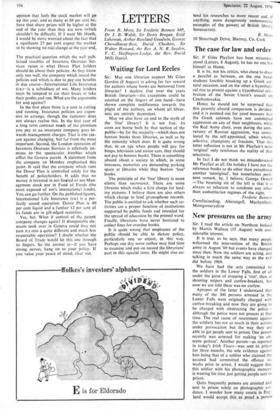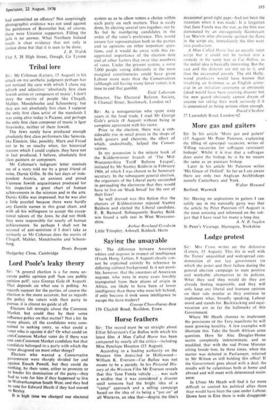New pressures on the army
Sir: I read the article on Northern Ireland by Martin Wallace (15 August) with con- siderable interest.
It is true, as he says, that many people welcomed the intervention of the British army in August '69 but events have changed since then. Now the soldiers are acting, and talking in much the same way as the lux did before 1969.
We have had the acts committed by the soldiers in the Lower Falls, first of all under the guise of stopping a 'riot', then of shooting snipers and curfew-breakers, but now we are told there was-no curfew.
Apropos of the latter I understand that many of the 300 persons arrested in the Lower Falls were originally charged with curfew-breaking and now they are going to be charged with obstructing the police— although the police were not present at that time. The real cause of resentment against the soldiery lies not so much in their actions under provocation but the way they are able to get people sent to prison. One person recently was arrested for making 'an ob- scene gesture'. Another person—as reported in today's Irish Times—was sent to prison for three months, the sole evidence against him being that of a soldier who claimed the accused had committed the offence six weeks prior to arrest. I would suggest that this soldier with his photographic memory is wasting his time just getting people sent to prison.
Quite frequently persons are arrested and sent to prison solely on photographic evi- dence. I wonder how many courts in Eng- land would accept this as proof a person
had committed an offence? Not surprisingly photographic evidence was not used against the gentlemen of Burntollet but, of course, these were Unionist supporters. Filling the jails is no answer. What Northern Ireland needs is clear evidence that not only is justice done but that it is seen to be done.































 Previous page
Previous page